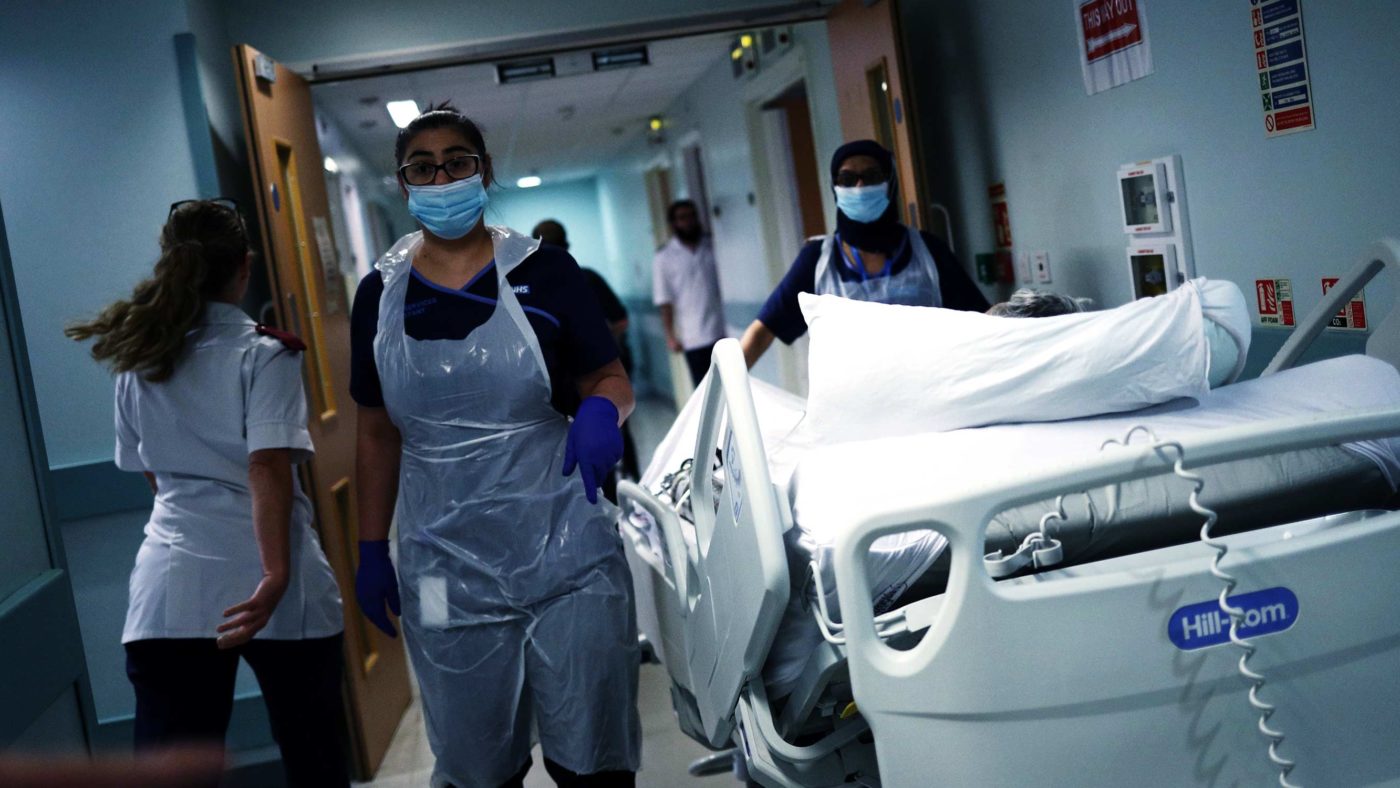There are many challenges in forecasting, but predicting the likelihood of a case of a winter crisis for the NHS isn’t one of them.
Every year, people wait for hours to be seen in A+E, operations are cancelled and, at worst, patients are left to die in corridors. Thanks to a surge of Covid cases largely unmitigated by vaccines, last year’s winter crisis was unprecedently brutal – and the only way to lighten the load on the health service was an economy-crushing stay-at-home order lasting several months.
The good news this year is that the UK’s booster programme, which started in September, has already seen over 24m people triple-vaccinated, including many of the most vulnerable. And that effort is only accelerating, with some vaccine centres running 24/7. Although this is a good move it is disappointing that it has taken so long since it was called for nearly 12 months ago.
With our most vulnerable people mostly boostered, even with a massive surge in cases, most Covid deaths should be prevented, but the structural issues of the NHS mean that hospitals are still in danger of being inundated with sick patients who need treatment, potentially overwhelming the system. Poor bed management flows and staffing issues leading to ward closures are not something that can realistically be solved in the next couple of weeks.
However, advances in antivirals such as Molnupiravir and Paxlovid as well as solid evidence regarding the efficacy of fluvoxamine should mean that people are soon able to undergo treatment at home. One realistic aim should be to provide people who test positive with Covid with a prescription for the above drugs. Home drug delivery is not revolutionary – Lloyds Pharmacy and Pharmacy2U amongst others have large distribution networks already in place to deliver drugs to people at home, and if they are overstretched there are credible alternative solutions. As John Myers and Jane Smith have wrote on CapX last week, with a concerted effort this could be up and running in the space of a few days.
Given the continued lack of access to vaccines in some countries, and the potential for more variants with unpredictable effects on transmission, vaccine escape and lethality the Government should also be investing more in vaccine production. Even if the worst case scenarios regarding variants do not come to pass, there are still billions who need and deserve access to vaccines.
But even if these measures do help relieve the Covid-related strain on the NHS, it should not be acceptable that the UK is the only country in Europe which faces annual healthcare crises. Compared to other European countries, the NHS is arguably somewhat underfunded, but this alone doesn’t tell the whole story. One of the big issues is how the funding is allocated, and the fact the NHS almost never receives the capital investment it needs to become more productive (or even maintain basic infrastructure).
This was made worse in 2014, when the Department for Health was allowed to raid the capital budget , (which ranges from computers for staff to new hospitals) to pay for day to day spending as a stealth funding measure just before the following year’s general election. From 2014-19, a £4.3bn black hole has opened up in the basic capital investment the NHS needed to keep treading water, never mind becoming a better service. Consequently the opposite has happened, and although Rishi Sunak announced there will be additional funding for the capital budget there has not been (yet) any news on whether the DHSC will be forbidden from touching it to meet everyday funding needs.
So although there are some good, solid short term steps the Government can take to reduce the impact of Covid on the healthcare system, our systemic winter problems are far more intractable. Over many years the British state has demonstrated it is a terrible investor when it comes to running its own services, and the NHS is sadly no exception.
Click here to subscribe to our daily briefing – the best pieces from CapX and across the web.
CapX depends on the generosity of its readers. If you value what we do, please consider making a donation.


